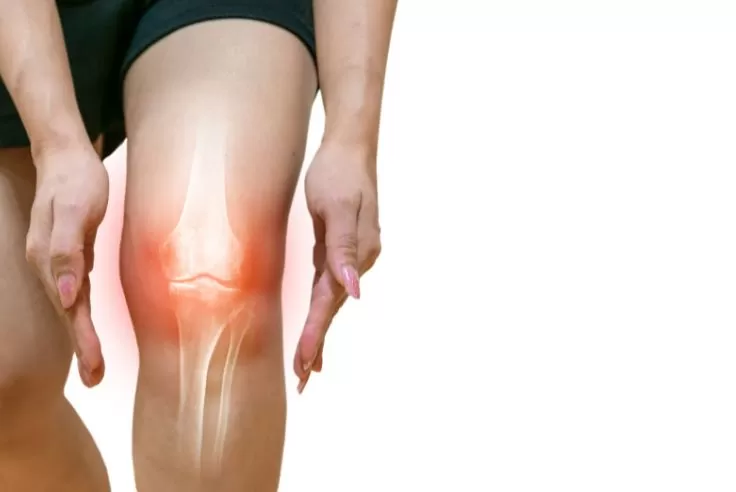According to the WHO, around 1.71 billion people globally experience bone-related pain.
As we age, our bodies undergo many changes, and one of the most important areas to care for is our bones. Strong bones help us stay active, maintain good posture, and avoid injuries like fractures.
This article will walk you through what the study found, and how you can apply these tips to live a healthier, more active life, no matter your age.
Whether you’re in your 30s, 50s, or beyond, there is always time to start taking care of your bones. Let’s dive in!
What Affects Bone Health?
Many factors can influence the strength and health of your bones, including:
- Calcium intake: A diet lacking calcium can lead to reduced bone density, quicker bone loss, and a higher chance of fractures.
- Physical activity: People who are less physically active have a higher risk of developing osteoporosis compared to those who stay active.
- Tobacco and alcohol use: Smoking has been linked to weakened bones. Women who drink more than one alcoholic beverage a day are at a higher risk of osteoporosis.
- Body size: If you are very thin (with a body mass index of 19 or less) or have a small body frame, you may have less bone mass, which puts you at a higher risk as you age.
- Age: As you get older, bones tend to become thinner and weaker.
- Hormonal levels: Too much thyroid hormone can lead to bone loss. For women, a sharp decline in estrogen during menopause accelerates bone loss.
- Eating conditions: Eating disorders that lead to intense calorie restriction. Conditions like celiac disease and some weight-loss surgeries can also affect how well the body absorbs calcium, which is essential for strong bones.
How Can I Keep My Bones Healthy?
Here are some simple ways to protect your bone health:
1. Get Enough Calcium: For adults aged 19-50 and men aged 51-70, aim for 1,000 milligrams of calcium daily. Women aged 51 and older, and men aged 71 and older, should aim for 1,200 milligrams daily.
Dairy products, almonds, broccoli, kale, canned salmon (with bones), sardines, and tofu are great sources of calcium. If you’re struggling to meet your calcium needs through food, consider asking your doctor about supplements.
2. Don’t Forget About Vitamin D: Your body needs vitamin D to properly absorb calcium. For adults aged 19-70, the recommended daily intake is 600 IU of vitamin D, which increases to 800 IU for adults over 71.
Foods rich in vitamin D include oily fish like salmon, trout, and tuna, as well as eggs, mushrooms, and fortified foods such as milk and cereals. Sun exposure also enables your body to produce vitamin D. If you’re unsure about your vitamin D levels, talk to your doctor about taking a supplement.
3. Stay Active: Regular physical activity is vital for maintaining strong bones. Engaging in weight-bearing exercises, such as walking, jogging, dancing, or climbing stairs, places stress on your bones, prompting them to strengthen. Try to get at least 150 minutes of moderate aerobic activity each week, along with muscle-strengthening exercises on two or more days.
These activities not only build bone density but also enhance balance and coordination, reducing the risk of falls and fractures. Incorporating movement into your daily routine can significantly boost your overall health and well-being.
4. Stay Hydrated: Water helps transport nutrients throughout your body, including calcium and vitamin D, which are vital for bone strength. Proper hydration also supports muscle function, reducing the risk of cramps and weakness that can lead to falls and injuries.
Aim for at least 8 glasses of water a day, adjusting for activity level and climate. Consider incorporating hydrating foods like fruits and vegetables, such as cucumbers and watermelon, to boost your fluid intake while enjoying tasty snacks!
5. Keep a Healthy Body Weight: If you’re underweight, your bones can become weaker, making them more likely to break. On the other hand, being overweight puts extra pressure on your bones and joints.
Remember, it’s all about making small, manageable changes that you can stick with over time for better overall health!
6. Bodywork and Massages: Massage improves blood circulation, which helps deliver essential nutrients to bones and tissues, promoting healing and strength. Regular massage can also relieve muscle tension and reduce stress, allowing for better mobility and flexibility.
Contact Jacqueline Kane, a stop-the-pain specialist for bodywork sessions that are the gateway to holistic healing and promote bone health.
To Sum Up
Bone health is crucial for everyone, especially as we age. Strong bones provide the support our bodies need for daily activities, helping us move, stand tall, and maintain good posture.
Healthy bones also protect vital organs and store important minerals like calcium. When bones weaken, the risk of fractures and injuries increases, which can lead to serious health issues.
By taking care of our bones through a balanced diet, regular exercise, and healthy lifestyle choices, we can maintain our independence and enjoy an active life. Prioritizing bone health is essential for overall well-being and quality of life as we grow older.





